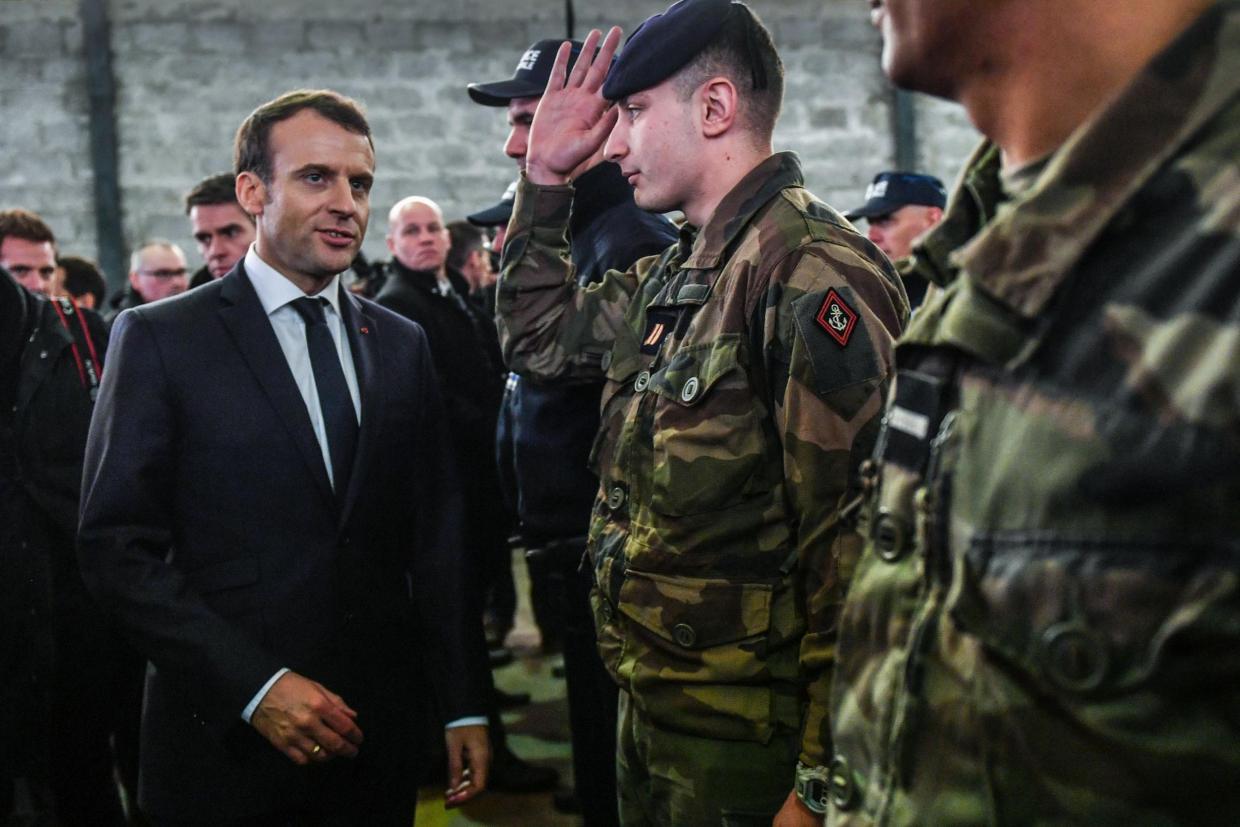By Alina Yalmanian

Image: The Independent, AFP/Getty Images
During the French presidential campaign last year Emmanuel Macron vowed to bring back a short-term military service requirement for young men and women. Over the last few weeks the president introduced this campaign pledge back into the national discourse, causing quite an uproar among young people. The form that Macron suggests differs greatly from the one that had already existed until 1997, before it was abolished by President Jacques Chirac. His new model would be a “universal national service” implying that it would apply to both men and women, between the ages of 18 to 21 – contrary to the initial military service, which was reserved only for men. He also announced that the service is to last three to six months and he has already put a general in charge of developing this idea. But why has the president of France decided to bring back military service? And more importantly, how can he think that it is the right path to take for the development of young men and women in the country?
Macron justified his decision to reintroduce military service by underlining the necessity to strengthen “national cohesion” in France. While the idea of national unity and pride is one typical to the French, I have strong doubts as to whether universal military service is the right tool to achieve this goal. To me it seems a bit out of date and out of touch with the new realities of French society. However, we do not know the exact reasons that pushed Macron to these actions. One might speculate that the call for a stronger and more unified France especially resonates with the citizens after the terrorist attacks the country had to face over the past years and the threats it still has to face. While I can indeed follow the underlying logic behind Macron’s new project, I do not stand behind it. And neither does the French Parliament. In a recent report the parliament vehemently undermined the argument that a month of military service would shape young men and women in any way. It correctly pointed out that if the youth is to become radicalized, military service will not change that and neither will it be able to prevent it, as extremism and radicalization often takes young people before the age of 18. In its report the parliament called this kind of argument “illusory”.
Having lived in a country where 60% voted in 2013 to keep national service, the reintroduction of universal military service by Macron does not particularly shock me. The Austrian people had clearly decided against the abolition of their service. It is therefore still required for men to accomplish it when they turn 18. They must serve their country by either joining the army for six months or by fulfilling a nine months civilian service. While I personally cannot get behind the idea of a mandatory military service, the Austrian system seems more appealing to me as it leaves men the choice of whether they want to accomplish a six-month military education or serve society in another way. In fact, I do not believe in the necessity of a mandatory military service if instead citizens can directly serve society and their communities more directly.
Luckily, members of Macron’s government have spoken out to say that another alternative to the universal military service is being considered. Officials have suggested that a program be implemented according to which all high school students will have to attend a week-long class where teachers will talk about civic issues. Students will then be encouraged to fulfil a one month civic internship, similar to the one at Sciences Po. The president has not yet confirmed these considerations. However I hope deeply that he will soon as I believe that a “civic engagement program” is exactly what we need. In fact, many young people have never been involved in charities or in a social cause – civil service might therefore just be the right occasion to make them experience what it means to be humble and help people in need. Anyone that has ever been involved in a charity or a social cause will agree that this kind of experience does not leave participants unchanged. Citizens, unaware of social issues or social realities, will certainly be shaped by their civil service. A mandatory civil service – like the one Sciences Po has now imposed on its students – would bear fruit in the long term. Social awareness, kindness, and generosity are values that should be taught to the our generation.
We do not need more people who know how to fire a gun – our problem in fact is that too many know how to do it and do not mind doing it. What people however often lack is sympathy and humanitarianism. The idea to reintroduce a universal military service the way Macron has suggested it therefore seems deeply unnecessary to me and is out of touch with today’s societies. Instead of teaching young men and women how to fire guns, the president should consider arming the youth with kindness and compassion.
Alina Yalmanian is a first year student, whose origins and nationality are too complicated to be explained in 2 lines. Plays the drums and practices martial arts even if she really does not look like it. On the Loose once a month.
Other posts that may interest you:
- The Trouble with ‘Ecocide’
- Carbon dioxide removal – hit or miss?
- Local Victories for Turkish Opposition — A Sign of Hope?
- Are France and Japan a Mismatch Made in Heaven?
- A Reflection on Dark Tourism
Discover more from The Sundial Press
Subscribe to get the latest posts sent to your email.





